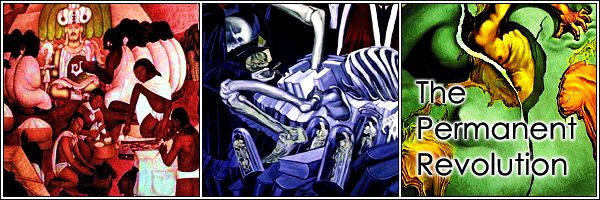It is hard to remember how bad things seemed for the West in the 1970s. Western economies reeled from the Oil Shocks and stagflation. The communist world grew to include South Vietnam, Nicaragua, Angola, Mozambique and Ethiopia. The Soviet Union began a campaign to intimidate Western Europeans through the installation of SS20 nuclear missiles capable of vaporizing every NATO base in Europe in a matter of minutes. In 1979, one might have been forgiven for being pessimistic about the West’s prospects. Nonetheless, that was the year Margaret Thatcher came to power, just in time to catch the coming neoliberal wave which would bring free market reform from Chile to China and destroy the Soviet Empire.
There is much more to Thatcher than that, however, as this book (Diplomacy and Disillusion at the Court of Margaret Thatcher) by the Hungarian-born specialist on Eastern Europe George R. Urban. An occasional informal adviser to Thatcher (the subtitle “An Insider’s Account” is somewhat an overstatement), Urban gives us his account of the Iron Lady. Initially he is enamored with her. Literally. Seduced, as many men strangely were, he found her “an attractive lady” who though in her fifties had “retained the movements, the legs and walk of a young woman.” He wrote some of her “Churchillian rhetoric” calling for the rollback of the state at home and the defeat of communism abroad. Upon meeting her for the first time, he was delighted that “this highly intelligent, well-informed and resolute lady would make mincemeat of the American leadership.” He adds “what a pleasure to see a person of ideas in charge of declining Britain!”
The book is a selection of Urban’s diary entries introduced with short passages that explain the time and context. The story is that his gradual disenchantment with Thatcher as someone systematically opposed to both ‘Europe’ and Germany. He records her saying as early as 1984 (!) that “there is no question that if the Germans were reunited they would, once again, dominate the whole of Europe.” Needless to say, this would pose some problems later.
In particular, Urban wants to set the record straight on the “Chequers Seminar” in March 1990 in which Thatcher invited a number of historians and experts to give her advice on Germany. It eventually was leaked in the press that the seminar’s participants, and Thatcher herself, had an extremely anti-German tone. Urban, with most other participants, pleaded that they had not been anti-German or conspiratorial, but that that had been the Prime Minister’s attitude. As her guests asked her to accept unification she would answer with statements like “Yes, yes, but you can’t trust them.” or “Ah well, but not when you are talking to Germans. They will always be the same.” In fact, she had reached her conclusion some days before, echoing Mitterrand’s 1913, she told him “we may be going back to the state of affairs preceding the First World War.”

“…it is possible that the real problems of the future will be quite new: for example Muslim fundamentalism in France and Britain…”
The debate central to Urban’s book is a little surreal from today’s vantage point. But a contemporary reader unfamiliar with both British domestic politics and end of Cold War foreign policy will, however, find many other things of interest. Telling things on the era. I don’t think Urban had 9/11 in mind when he wrote to Thatcher, downplaying Europe’s potential problems with German and Russia, that “it is possible that the real problems of the future – and of course there will be some – will be quite new: for example Muslim fundamentalism in France and Britain supported by Libya or Iran.” Who cannot see some vindication for Vladimir Putin when Urban told Thatcher, “half in jest” that in Yeltsin’s Russia “what the ‘dark masses’ need is the periodic application of the whip, as so many Russians have been telling us. The present chaos, too, is waiting to be sorted out by a strong man of one kind or another. […] Even today, many Russians will volunteer the opinion that only a Tsar-like figure can keep them in order.”

“The present chaos [in Russia] is waiting to be sorted out by a strong man of one kind or another.”
Urban is writing before Tony Blair coined the term ‘Cool Britannia’. His Britain, only 10 or 20 years ago, is a weird place. The infamous and legendary anti-immigration populist Enoch Powell writes that the idea of the Soviet Union being bent on world domination is a self-serving American lie that has “no basis in fact”. As though it were the 1950s, Urban notes that “it is English chic to show Spartan exterior if not downright poverty.” Whole pages of the book are made up of Urban or Thatcher’s lamentations of the state of English: Why did all Britain’s goods come from Germany or Japan? Why were the only stores open till late at night owned by Pakistanis? Why were the English so sloppy, lazy, easy-going and humble? It was quite embarrassing for a statesman’s nation to be thus: “Thatcher is in many respects too good for Britain… She is cut out to be the leader of a nation with the thrift and work ethic of Japan, Germany, Switzerland, Taiwan, perhaps even the US, where her vision, resolve and free-market enthusiasm would produce lasting results.”
This tension, not like unlike that between De Gaulle and France, between Thatcher the English patriot and her distinctively un-English qualities (Urban notes a few: “moderation, give-and-take, respect for minority views, the distrust of grand schemes and theories…”) is only one of the paradoxes of her character. She is far more complicated than what many people who praise her legacy today seem to think. Thatcher, who according to Mitterrand “becomes like an 8-year old girl when she is with Reagan,” was outraged when the US invaded Grenada, on the grounds that it violated “Commonwealth sovereignty”. Thatcher, the Cold Warrior, like George Bush went to Kiev to oppose Ukraine’s independence (No “vive le Quebec libre” here…), supporting the collapse of communism and the integrity of the USSR. Thatcher, the nationalist, justifies this with a critique of Wilson of which given the troubles we have had, even today in the former Yugoslavia and Iraq, I can only approve: “It is Woodrow Wilson, of course, who is ultimately responsible for the damaging myth of the single-nation state. Such states cannot work. Wilson got it all wrong. He is the one to be put in the dock of history.” Finally, and perhaps most interestingly, Thatcher, for 15 years leader of the Tories, eventually came to dislike the term “conservative”: “we are a party of innovation, of imagination, of liberty, of striking out in new directions, of renewed national pride and a novel sense of leadership. That’s not ‘conservative’, is it?!”
The paradoxes and complexities escape her image in the United States. Urban describes a lavish party hosted by the Heritage Foundation with her as guest of honor: “It was a black-tie occasion. Everybody who is anybody in Washington and beyond was there – some fourteen hundred of them… The queen couldn’t have done better, what with the country-club conservatives, corporate America and the military all gathered under one roof… America was conferring on MT the sort of honorary imperial presidency she had vainly sought at home… But here in Washington, seat of the only remaining superpower, with the symbols, and the reality, of the might of America so theatrically displayed, she could, for a brief hour or two, savor the rewards of history she felt were her due. She was praised by her hosts to the point of embarrassment. When the black ties stood up to toast her, it was like a regimental gathering drinking to the monarch.”
This kind of honor is not something that Thatcher could receive in Britain without some heckling: hated by a large part for the mass unemployment her policies caused, thrown overboard by her own Conservative Party for the poll tax’s unpopularity, disliked by the foreign policy establishment for her opposition to both German unification and European integration… In Britain, the aggressively neoliberal/libertarian/neoconservative (whatever you want to call it) streak is quite alien to the nation’s character. She has only found an enduring appeal to the Euroskeptics still fighting against ‘Brussels’.

Thatcher and Reagan, withering into history...
It is strange that of all foreign leaders, only British ones like Churchill and Thatcher ever have conservative cults dedicated to them in the US. Her hallowed place in the Pantheon of American conservatism, like Churchill’s, is a skewed one: she has been reduced merely to the proponent of limited government and the flamboyant Cold Warrior. She has been stripped of all the idiosyncrasies, contradictions and petty parochialisms that make up every political life and every human being. One wonders if she can truly take comfort as she basks in the glory of being etched into the memory of the Americans, for what they see in her is not her, but a vain reflection of themselves.






1 Comments:
Enjoyed the book review and the conclusion.
Post a Comment
<< Home